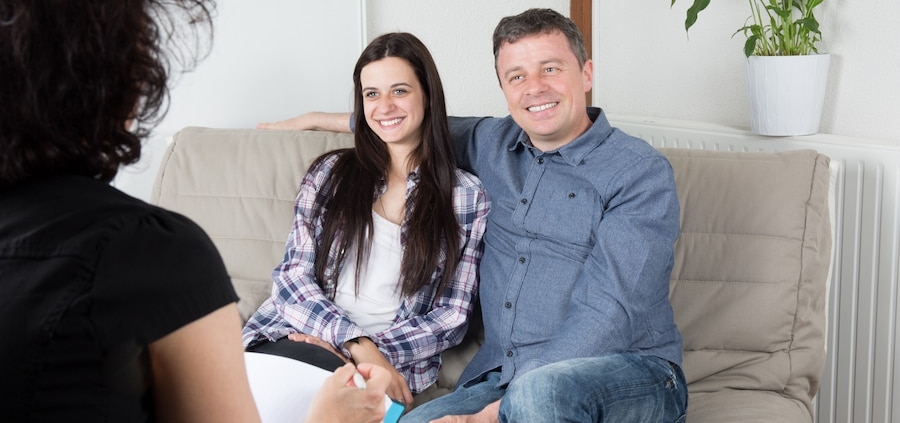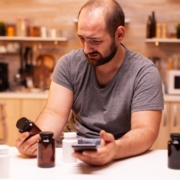Addiction can take a significant toll on relationships, often leading to strained communication and misunderstandings between partners. In Orange County, couples struggling with addiction can find hope and healing through effective communication techniques offered at couples rehab centers. In this article, we delve into the importance of communication skills for couples navigating addiction recovery in Orange County and how couples rehab programs can help strengthen relationships through better communication.
Couples Rehab Services
Understanding the Impact of Addiction on Communication
In the face of addiction, communication often becomes strained as partners grapple with feelings of shame, guilt, and fear of judgment. Honest and open dialogue may be replaced by avoidance or deflection, as individuals attempt to conceal their substance abuse or protect their partner from the harsh realities of addiction. This breakdown in communication can create barriers to intimacy and connection, driving a wedge between partners and exacerbating feelings of isolation and loneliness.
Additionally, unresolved conflicts and unaddressed emotions may linger beneath the surface, festering and fueling resentment over time. As a result, repairing and rebuilding communication in a relationship affected by addiction is essential for fostering healing, understanding, and trust between partners.
The Role of Effective Communication in Recovery
In recovery, effective communication serves as a cornerstone for navigating the challenges and triumphs of the journey together. By creating a safe space for honest expression and active listening, couples can openly discuss their thoughts, feelings, and concerns, fostering greater understanding and connection. Through communication, couples can address triggers, identify potential relapse risks, and collaboratively develop strategies for managing cravings and maintaining sobriety.
Moreover, effective communication enables couples to offer support, encouragement, and accountability to each other, strengthening their commitment to mutual growth and recovery. By prioritizing open and constructive communication, couples can cultivate a resilient foundation for long-term sobriety and a healthier, more fulfilling relationship.
Key Communication Skills for Couples in Recovery
- Active Listening: Couples rehab programs emphasize the importance of active listening, where partners focus on understanding each other’s perspectives without interrupting or judging. Through active listening, couples can validate each other’s experiences, cultivate empathy, and strengthen emotional connections.
- Expressing Emotions: Many couples struggling with addiction may find it challenging to express their emotions openly. Couples rehab provides a safe space for partners to explore and express their feelings without fear of judgment or criticism. By learning to identify and communicate their emotions, couples can deepen their emotional intimacy and bond.
- Setting Boundaries: Healthy boundaries are essential for maintaining sobriety and preserving the integrity of the relationship. Couples rehab teaches couples how to establish clear and mutually-respected boundaries that promote respect, trust, and accountability. Setting boundaries allows couples to protect their individual needs while supporting each other’s recovery journey.
- Conflict Resolution: Conflict is a natural part of any relationship, but for couples in recovery, learning constructive conflict resolution skills is crucial. Couples rehab teaches couples effective techniques for resolving conflicts peacefully, such as using “I” statements, active listening, and seeking compromise. By resolving conflicts positively, couples can prevent relapse triggers and strengthen their partnership.
- Building Trust: Rebuilding trust is often a central focus of couples rehab programs. Through open and honest communication, couples can address past betrayals, rebuild trust, and foster a sense of safety and security in the relationship. Trust serves as the foundation for long-term recovery and relational healing.

Couples may choose a rehab center that specializes in treating both partners simultaneously for several reasons:
- Supportive Environment: Couples rehab offer a supportive environment where partners can navigate their recovery journey together. Having a partner by your side can provide invaluable emotional support, encouragement, and motivation throughout the treatment process.
- Addressing Relationship Dynamics: Addiction often impacts the dynamics of a relationship, leading to trust issues, communication breakdowns, and conflicts. Couples rehab centers focus on addressing these underlying relationship issues alongside individual addiction treatment, helping couples rebuild trust, improve communication, and strengthen their bond.
- Integrated Treatment Approach: Couples rehab centers provide integrated treatment programs that address both partners’ individual needs and the dynamics of their relationship. This holistic approach ensures that both partners receive comprehensive care tailored to their unique circumstances, increasing the likelihood of successful recovery outcomes.
- Shared Experience: Going through rehab as a couple allows partners to share their experiences, challenges, and successes with each other. This shared experience can foster empathy, understanding, and solidarity between partners, creating a supportive foundation for recovery.
- Improved Accountability: Being in rehab together promotes accountability between partners. They can hold each other accountable for staying sober, attending therapy sessions, and adhering to treatment goals, reducing the risk of relapse and promoting long-term sobriety.
Overall, choosing a couples rehab center offers couples the opportunity to heal together, rebuild their relationship, and embark on a journey of recovery as a team.
Benefits of Couples Rehab for Communication Skills
Through couples rehab programs, partners can gain insights into their communication patterns and learn practical techniques to improve their interaction and understanding of each other. Therapeutic interventions, such as role-playing exercises, active listening techniques, and conflict resolution strategies, help couples identify and address communication barriers effectively.
The supportive environment of couples rehab fosters a sense of safety and vulnerability, allowing partners to express themselves authentically and openly without fear of judgment or resentment. As couples learn to communicate more effectively, they can rebuild trust, strengthen their emotional connection, and cultivate healthier relationship dynamics, laying a solid foundation for lasting recovery and mutual growth.
Communication Skills for Couples Struggling with Addiction
Effective communication is a cornerstone of successful addiction recovery for couples in Orange County. By learning and practicing essential communication skills such as active listening, expressing emotions, setting boundaries, conflict resolution, and building trust, couples can strengthen their relationship and support each other’s journey towards sobriety and wellness. Couples rehab programs in Orange County provide the resources, guidance, and support couples need to nurture healthy communication habits and rebuild their lives together. Contact us today to explore how our specialized programs can help you and your partner on the journey to recovery and relationship wellness.

- What role do communication skills play in couples rehab programs for those struggling with addiction?
- Communication skills are essential in couples rehab programs for individuals struggling with addiction. Effective communication fosters understanding, empathy, and connection between partners, enabling them to navigate challenges and support each other in their recovery journey.
- How can couples improve their communication skills while dealing with addiction?
- Couples can improve their communication skills by actively listening to each other, expressing their thoughts and feelings openly and honestly, and practicing empathy and validation. Couples rehab programs offer specialized therapy sessions and exercises focused on communication enhancement to help partners develop these essential skills.
- Why is effective communication particularly important for couples dealing with addiction?
- Effective communication is particularly important for couples dealing with addiction because it allows them to address underlying issues, resolve conflicts, and rebuild trust. By communicating openly and authentically, couples can create a supportive environment conducive to healing and recovery.
- What are some common communication challenges faced by couples struggling with addiction?
- Common communication challenges faced by couples struggling with addiction include misunderstandings, defensiveness, blaming, and avoidance of difficult topics. These challenges can hinder progress in recovery and strain the relationship if left unaddressed.
- How do couples rehab programs address communication issues in relationships affected by addiction?
- Couples rehab programs address communication issues by providing couples with tools, techniques, and therapeutic interventions to improve their communication skills. These may include role-playing exercises, active listening techniques, and structured communication exercises tailored to the unique needs of each couple.
- What are the benefits of improving communication skills in couples rehab?
- Improving communication skills in couples rehab can lead to enhanced understanding, increased intimacy, and strengthened bonds between partners. Effective communication fosters a sense of connection and mutual support, which are crucial for successful recovery and relationship healing.
- Can learning communication skills in couples rehab help prevent relapse?
- Yes, learning communication skills in couples rehab can help prevent relapse by enabling partners to express their needs, set boundaries, and address triggers effectively. Improved communication reduces misunderstandings and conflicts, creating a supportive environment that promotes sobriety and long-term recovery.
- Are communication skills learned in couples rehab applicable outside of the treatment setting?
- Yes, communication skills learned in couples rehab are highly applicable outside of the treatment setting. Partners can apply these skills in their everyday lives to navigate challenges, resolve conflicts, and strengthen their relationship beyond the confines of therapy sessions.
- How long does it take for couples to see improvements in their communication skills after participating in rehab?
- The timeline for seeing improvements in communication skills varies for each couple and depends on factors such as commitment to practice, willingness to change, and the severity of underlying issues. With consistent effort and practice, couples can typically start to see positive changes in their communication patterns within a few weeks to months of participating in rehab.
- What resources are available to couples seeking to improve their communication skills outside of couples rehab?
- Couples seeking to improve their communication skills outside of rehab can access a variety of resources, including books, online courses, workshops, and support groups. Additionally, individual and couples therapy sessions with qualified therapists can provide ongoing guidance and support in enhancing communication skills and strengthening relationships.











